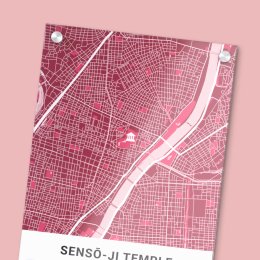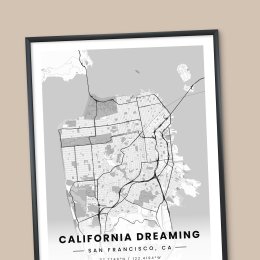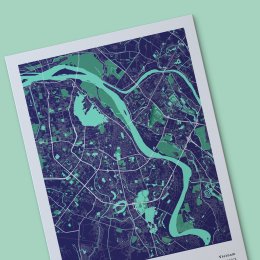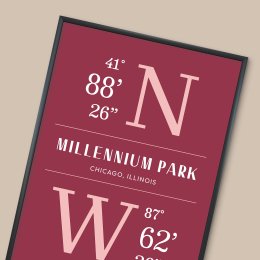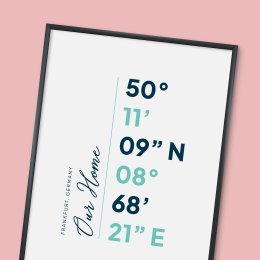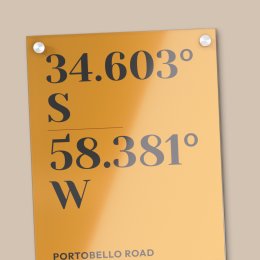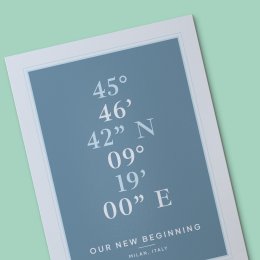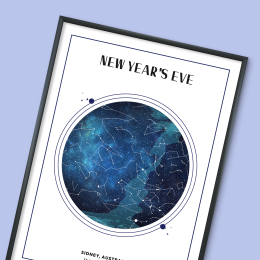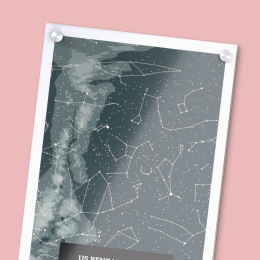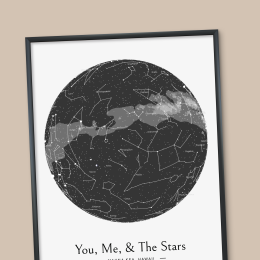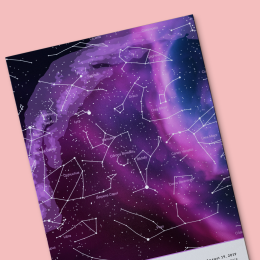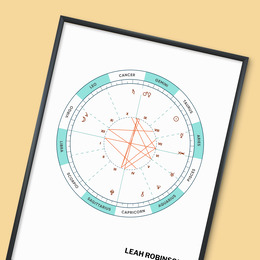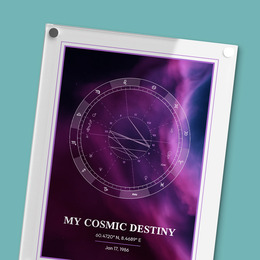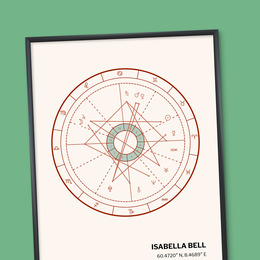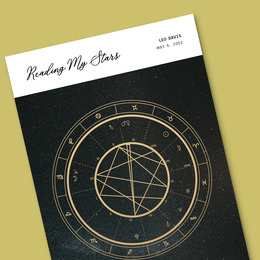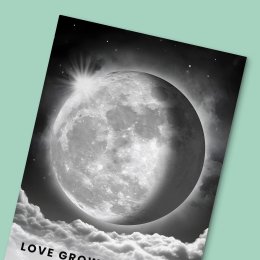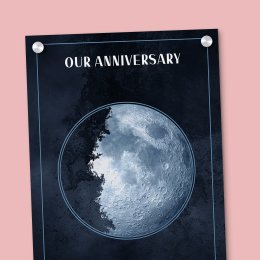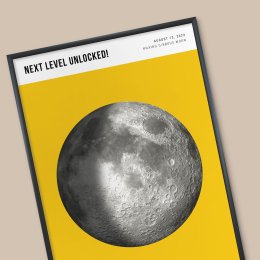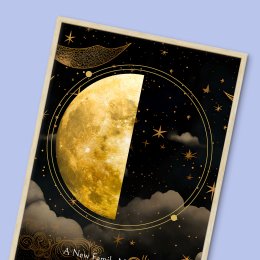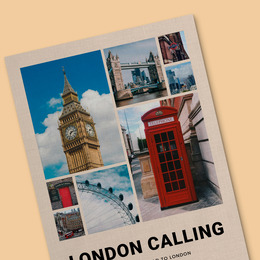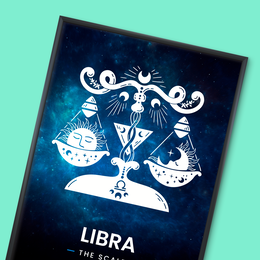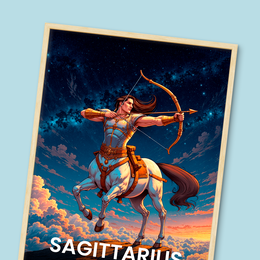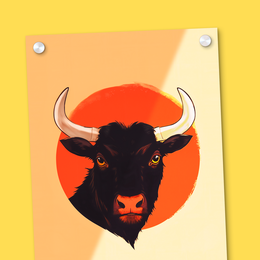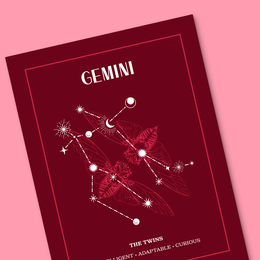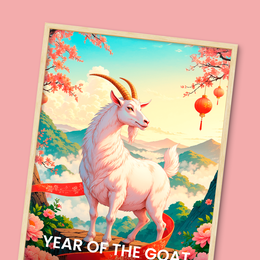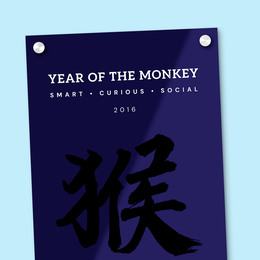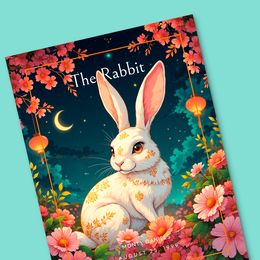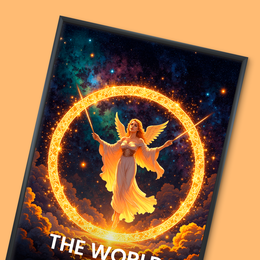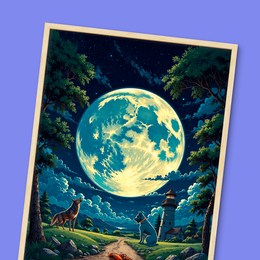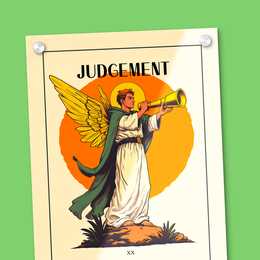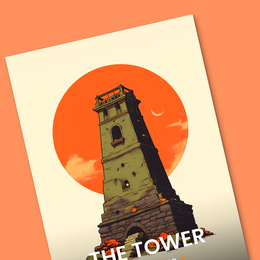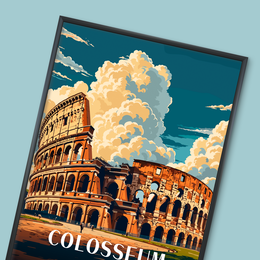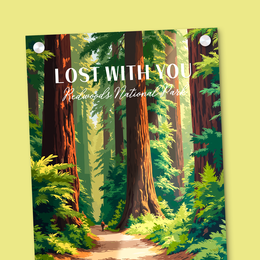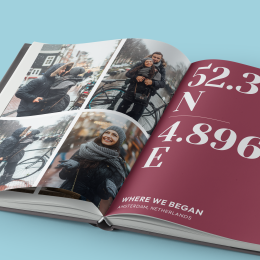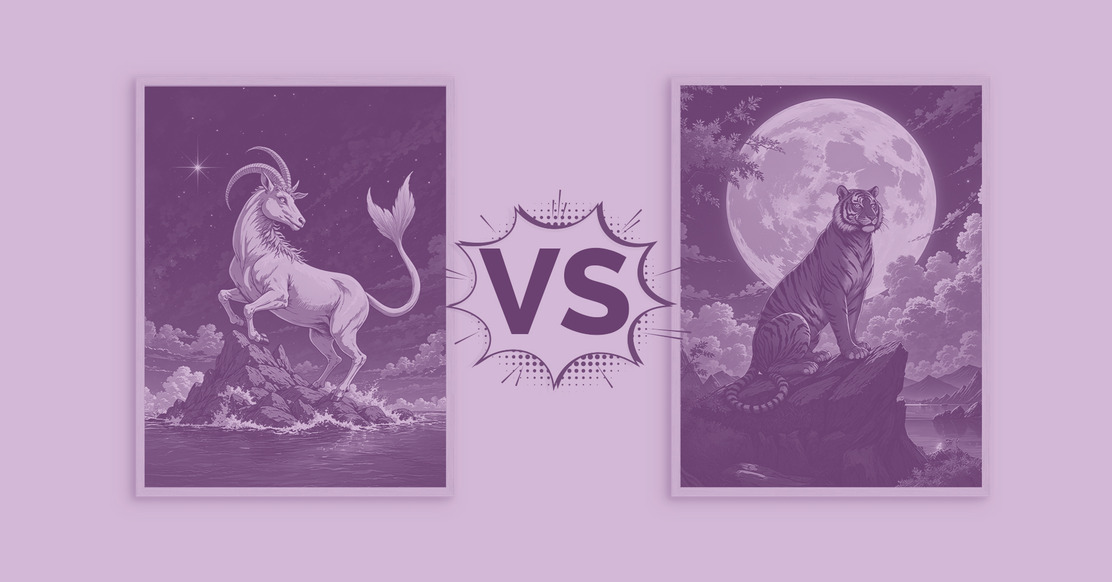
Chinese Zodiac vs. Western Astrology: What’s the Difference?
Across the globe and throughout history, people have looked to the stars to better understand themselves and the world around them.
Two of the most widely followed astrological systems—Western astrology and the Chinese zodiac—offer distinct approaches to interpreting human nature, fate, and cosmic influence.
Whether you’re getting your birth chart read or creating a striking custom zodiac poster or custom Chinese zodiac poster for your space, you may not know the full story behind either astrological system.
At first glance, they may seem similar, but a deeper look reveals profound differences in their structure, philosophy, and cultural roots.
Origins and Historical Background
Astrology, in all its diverse forms, has deep roots in humanity’s attempt to understand the cosmos and its influence on earthly life.
Across civilizations, people have looked to the skies for meaning—developing intricate systems to interpret celestial movements and their impact on human affairs.
While different cultures approached astrology in distinct ways, each tradition reflects a profound connection between the heavens and human destiny.
The Origins of Western Astrology
Western astrology can trace its roots back to Babylonian stargazing practices over 2,000 years ago, which were later refined by Hellenistic astrologers in ancient Greece.
This system aligns closely with Greek mythology and philosophical concepts like the four elements—fire, earth, air, and water. It’s built on a geocentric model, observing how the sun, moon, and planets move through the twelve constellations of the zodiac.
Over centuries, Western astrology evolved into a complex system that uses not just the sun sign (the sign the sun was in when you were born), but also planetary positions, houses, and aspects to create a full natal chart, offering deep personal insights.
The Origins of the Chinese Zodiac
The Chinese zodiac, or Shēngxiào (生肖), has been in use for over two millennia and is deeply tied to Chinese cosmology, folklore, and the lunar calendar. It originated during the Han Dynasty and remains a cornerstone of Chinese culture.
Rather than tracking planetary movement, the Chinese system divides time into repeating 12-year cycles, each governed by an animal sign. These animals are more than symbolic—they're believed to influence personality, compatibility, and destiny.
The zodiac is also intricately tied to Yin-Yang theory, the Five Elements (Wood, Fire, Earth, Metal, Water), and a person’s birth time—making it more multidimensional than it first appears.
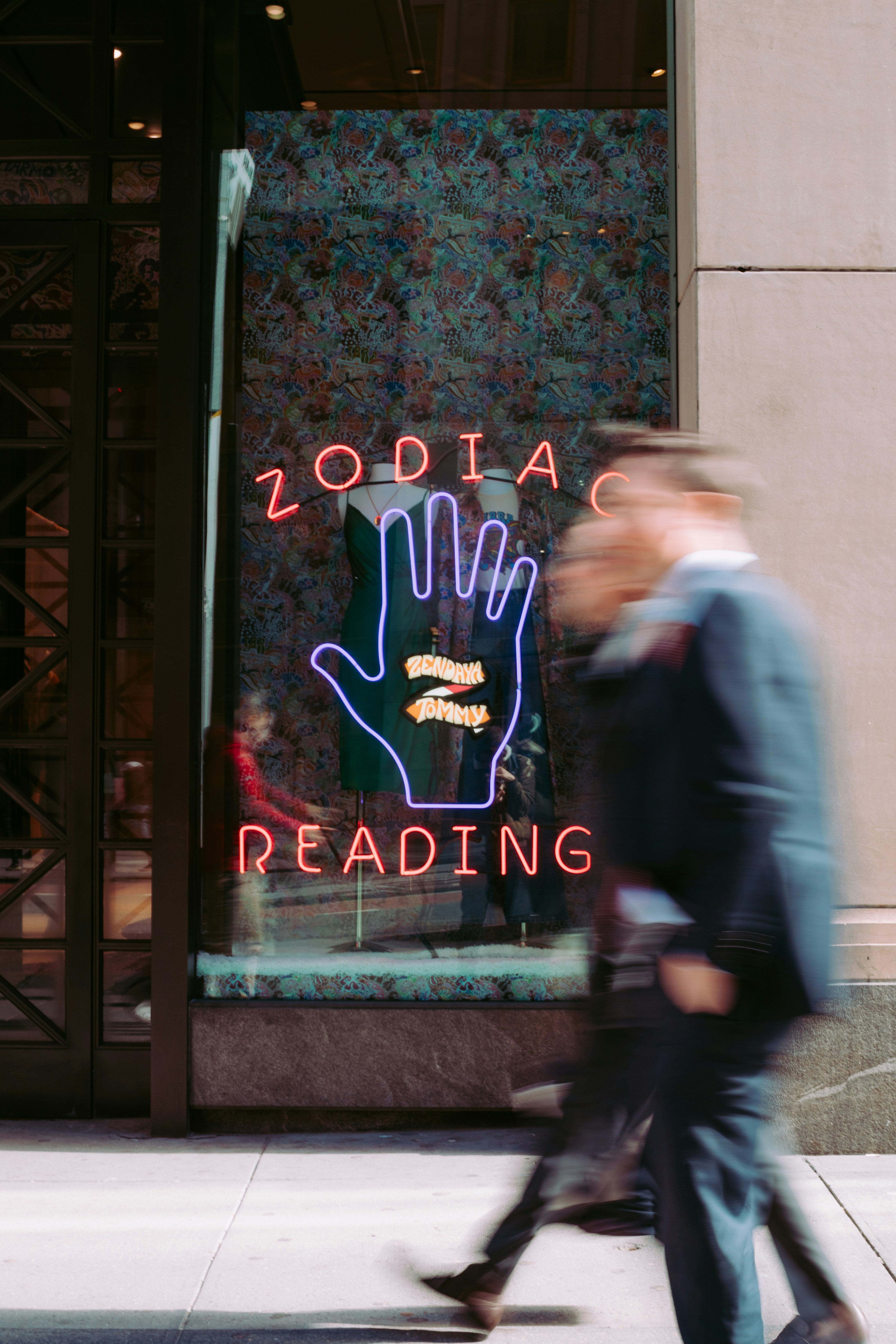
Structure and System
The most immediate and striking difference between Western astrology and the Chinese zodiac lies in how each system is structured and how a person’s sign is determined.
Both traditions assign symbolic identities, but the methods they use—and the resulting insights—are deeply shaped by differing cosmologies, calendars, and symbolic layers.
Western Astrology: A Solar System of Signs
Western astrology is grounded in a 12-sign zodiac wheel, segmented according to the position of the sun relative to Earth during a person’s birth.
These signs—Aries through Pisces—are linked to constellations along the ecliptic (the apparent path the sun takes through the sky over a year).
Your sun sign is determined by the solar calendar and corresponds to the roughly 30-day period in which the sun resides in that constellation.
While the sun sign is the most popularly known, Western astrology delves far deeper. A complete natal (birth) chart is cast based on the exact time, date, and location of your birth, and includes:
- Sun Sign: Your core identity and ego.
- Moon Sign: Your inner emotions and instincts.
- Rising Sign (Ascendant): Your outward persona and how others perceive you.
- Planets in Signs and Houses: Each planet (Mercury, Venus, Mars, etc.) governs a facet of life, such as love, communication, or ambition. Where they fall in the zodiac and in the 12 astrological houses defines how and where those energies play out in your life.
- Aspects: The angular relationships between planets (e.g., trines, squares, conjunctions), which indicate tension or harmony.
Western astrology follows the Gregorian solar calendar, with consistent monthly dates assigned to each sign. This provides a predictable structure that resets annually, making it easy to identify one’s sun sign based solely on birth date.
Chinese Zodiac: A Lunar Cycle of Layers
In contrast to the Western model, the Chinese zodiac is built around a 12-year cycle, with each year assigned to one of twelve animals in a fixed sequence: Rat, Ox, Tiger, Rabbit, Dragon, Snake, Horse, Goat, Monkey, Rooster, Dog, Pig.
These animal signs are thought to influence the character, strengths, weaknesses, and fortune of those born during that year.
Chinese astrology is multi-dimensional, incorporating the Five Elements and the concept of Yin and Yang, which further define each sign:
- Five Elements: Wood, Fire, Earth, Metal, and Water. These rotate every two years and interact with the animal sign to add nuance. For example, a Wood Dragon is different from a Metal Dragon.
- Yin and Yang: Alternating annually, each animal has a Yin (passive, receptive) or Yang (active, assertive) polarity, which affects the behavioral traits of people born that year.
The Chinese system doesn’t stop at the year. A full Chinese birth chart uses the Four Pillars of Destiny—year, month, day, and hour of birth—to determine deeper personality traits and fate.
Each pillar has both an animal sign and an element, creating a more refined and individualized chart.
Unlike the Western solar calendar, the Chinese zodiac operates according to the lunar calendar, meaning the zodiac year does not begin on January 1st but rather on Chinese New Year, which typically falls between late January and mid-February.
As a result, individuals born in January or early February may belong to the previous year’s animal sign.
Comparing Zodiac Systems
|
Feature |
Western Astrology |
Chinese Zodiac |
|---|---|---|
|
Calendar Type |
Solar (Gregorian) |
Lunar (Chinese lunisolar calendar) |
|
Sign Assignment |
Based on month and day of birth |
Based on year of birth |
|
Number of Signs |
12 Sun signs |
12 Animal signs |
|
Additional Layers |
Planets, Houses, Aspects |
Elements, Yin-Yang, Four Pillars |
|
Personalization |
Exact time/location determine full chart |
Year, month, day, hour create Four Pillars chart |
|
Cycle Length |
Annual reset |
12-year repeating cycle |
Symbols and Meanings
Both Western astrology and the Chinese zodiac use symbolic figures to represent personality traits, compatibility, and life tendencies.
However, the origin, meaning, and interpretation of these symbols differ considerably.
Western astrology relies on constellations and mythological archetypes rooted in Greco-Roman tradition, while the Chinese zodiac draws its symbolism from a blend of folklore, animals, and Taoist philosophy.
Western Zodiac Signs: Archetypes of the Stars
Each Western zodiac sign corresponds to a 30-degree segment of the 360-degree zodiac wheel and is tied to a particular constellation along the sun's ecliptic path. The signs, in order, are:
- Aries (March 21–April 19) – The Ram: Bold, competitive, energetic
- Taurus (April 20–May 20) – The Bull: Steady, sensual, stubborn
- Gemini (May 21–June 20) – The Twins: Curious, communicative, dual-natured
- Cancer (June 21–July 22) – The Crab: Nurturing, emotional, protective
- Leo (July 23–August 22) – The Lion: Proud, expressive, charismatic
- Virgo (August 23–September 22) – The Virgin: Analytical, meticulous, practical
- Libra (September 23–October 22) – The Scales: Diplomatic, balanced, people-pleasing
- Scorpio (October 23–November 21) – The Scorpion: Intense, private, transformative
- Sagittarius (November 22–December 21) – The Archer: Adventurous, philosophical, blunt
- Capricorn (December 22–January 19) – The Goat: Ambitious, disciplined, reserved
- Aquarius (January 20–February 18) – The Water Bearer: Eccentric, visionary, rebellious
- Pisces (February 19–March 20) – The Fish: Empathic, dreamy, artistic
Elemental Associations
Each sign is also tied to one of the four elements, which describe temperament:
- Fire (Aries, Leo, Sagittarius): Energetic, passionate, bold
- Earth (Taurus, Virgo, Capricorn): Practical, grounded, reliable
- Air (Gemini, Libra, Aquarius): Intellectual, social, curious
- Water (Cancer, Scorpio, Pisces): Emotional, intuitive, nurturing
Modalities: Cardinal, Fixed, Mutable
Signs are also grouped by modality, or how they initiate and respond to change:
- Cardinal (initiators): Aries, Cancer, Libra, Capricorn
- Fixed (stabilizers): Taurus, Leo, Scorpio, Aquarius
- Mutable (adapters): Gemini, Virgo, Sagittarius, Pisces
Each sign combines these layers into a unique personality archetype, reflecting one's identity, relationships, work style, and emotional patterns.
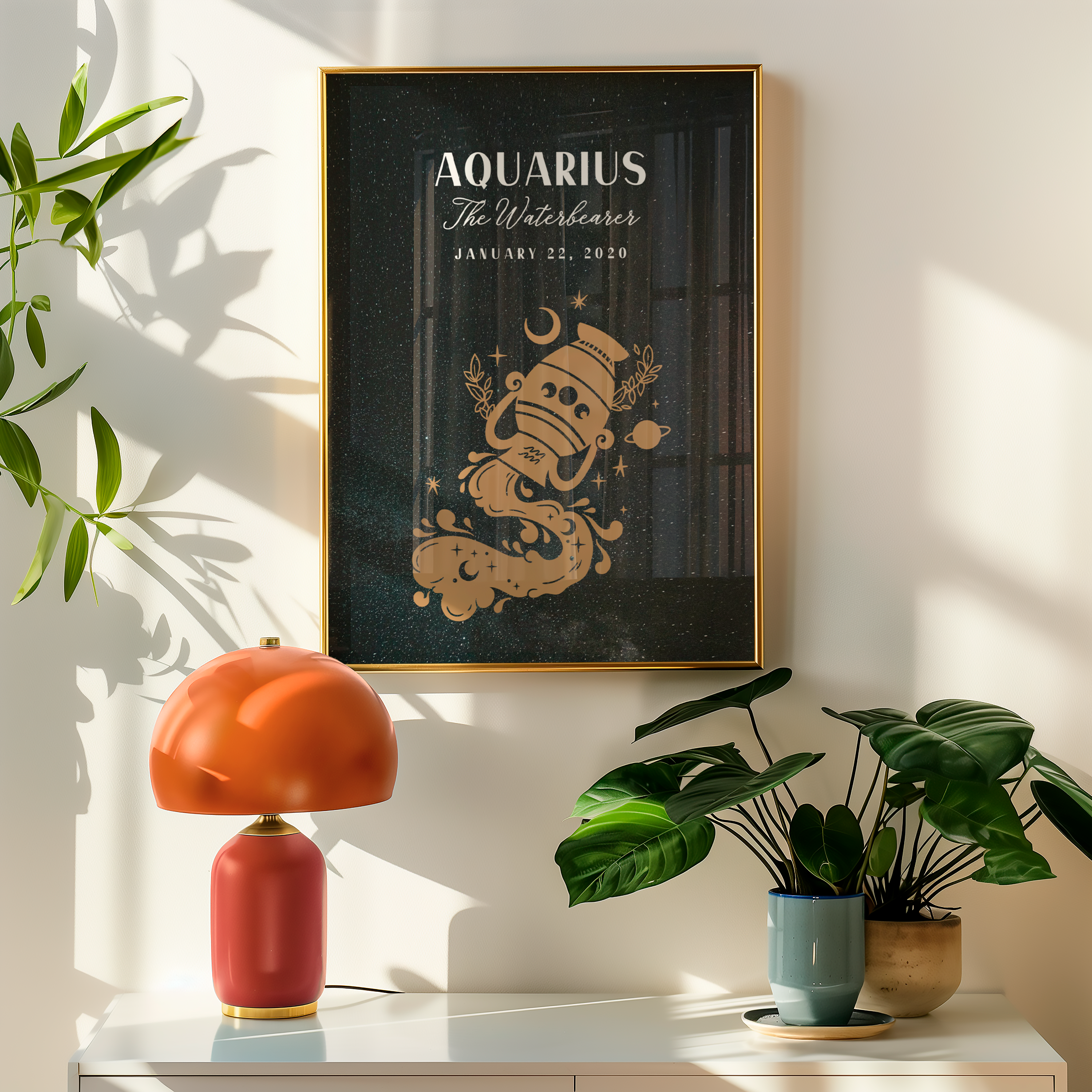
Chinese Zodiac Animals: Creatures of Character and Fate
The Chinese zodiac assigns an animal sign to each birth year, repeating every 12 years. These signs stem from the legendary "Great Race," where animals competed to determine their place in the zodiac order. Each animal carries specific symbolic traits:
- Rat – Intelligent, strategic, charming
- Ox – Dependable, patient, strong-willed
- Tiger – Brave, competitive, unpredictable
- Rabbit – Gentle, elegant, peace-loving
- Dragon – Ambitious, confident, powerful
- Snake – Wise, enigmatic, refined
- Horse – Energetic, free-spirited, passionate
- Goat – Artistic, compassionate, mild-mannered
- Monkey – Clever, curious, mischievous
- Rooster – Observant, proud, hardworking
- Dog – Loyal, honest, protective
- Pig – Generous, easygoing, sincere
Layered Symbolism: Element + Yin-Yang
Each animal year is further enhanced by a Heavenly Stem: the element and polarity that rule that particular year.
This results in a 60-year cycle (12 animals × 5 elements × 2 polarities = 60 combinations). For instance, a Fire Tiger (born in 1986) will have a different personality profile than a Water Tiger (born in 1962).
Compatibility and Destiny
Whereas Western astrology often looks at sign compatibility through synastry charts and planetary aspects, Chinese astrology evaluates interpersonal harmony using animal pairings:
- Best pairings are based on triangular alliances (e.g., Rat, Dragon, Monkey).
- Clashing signs (e.g., Tiger and Monkey) indicate potential friction.
- Compatibility plays a key role in matchmaking, marriage, and even business partnerships.
Broader Use of Symbolism
Beyond personal identity, each animal sign carries symbolic meaning in society. For instance:
- The Year of the Dragon is considered especially lucky and leads to baby booms.
- Year of the Rooster symbolizes hard work and new beginnings.
- Animals are used in feng shui, annual fortune forecasts, and major cultural celebrations.
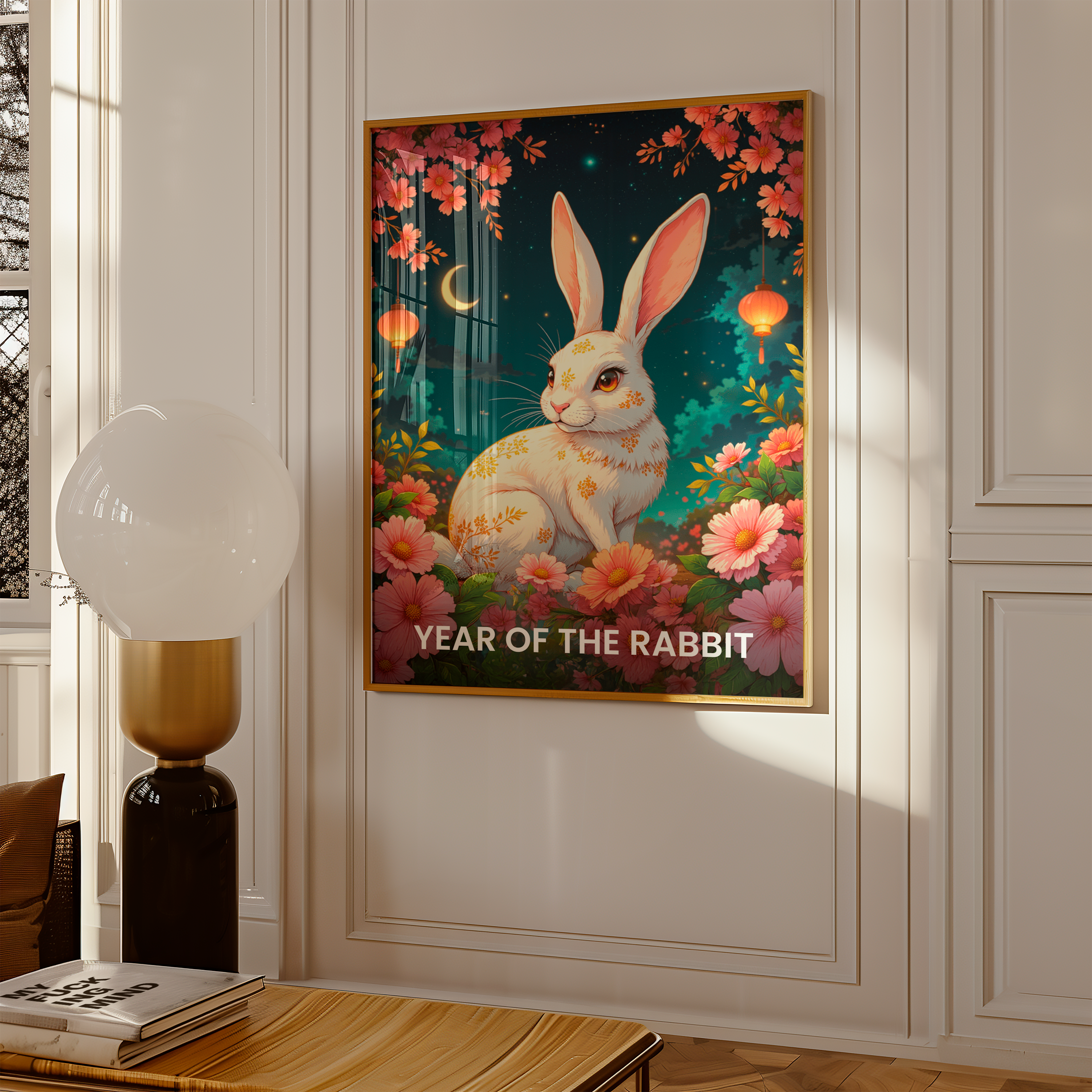
Philosophical and Cultural Underpinnings
While both Western astrology and the Chinese zodiac serve to help individuals better understand themselves and their place in the world, they are deeply influenced by the distinct philosophical traditions and cultural values of their respective origins.
These foundational beliefs shape not only how the systems work, but also how they are used in everyday life.
Western Astrology: The Individual and the Cosmos
Western astrology is heavily influenced by classical Greek philosophy, especially the ideas of Plato, Aristotle, and Ptolemy.
It sees the universe as a macrocosm, with each individual life acting as a microcosm—a reflection of the cosmos. This mirrors the belief that understanding the stars can lead to understanding oneself.
Greek and Roman mythology also play a major role. The planets are named after gods (e.g., Mars, Venus, Jupiter), and each zodiac sign embodies mythic archetypes.
These stories lend symbolic depth to the system, helping astrologers interpret planetary influences as forces of personality, fate, or psychological tension.
In modern Western astrology—especially post-20th century—a significant shift occurred: it became more psychological and individualized.
Influenced by thinkers like Carl Jung, Western astrology today often emphasizes self-awareness, personal growth, and emotional insight. Your birth chart is treated like a cosmic blueprint of your psyche.
Although planetary alignments are seen as influencing personality and circumstances, Western astrology typically does not prescribe fixed destinies.
Instead, it encourages individuals to exercise free will, using astrology as a tool for reflection, preparation, and empowerment. The chart doesn't define you—it offers a map for navigating your choices.
Chinese Zodiac: Harmony, Fate, and Collective Balance
Chinese astrology is intertwined with Taoist principles, particularly the ideas of balance, natural cycles, and flow (Qi).
It emphasizes the harmony between humans and the universe. Everything, including our destiny, is seen as part of a dynamic, interconnected system governed by cosmic rhythms.
Confucianism also plays a role, reinforcing the value of order, social roles, and collective well-being.
Unlike the individualistic leanings of Western astrology, the Chinese zodiac is more likely to frame personal traits in relation to family, society, and cosmic alignment.
The Chinese zodiac operates within a larger framework of Yin-Yang duality (passive/active, dark/light, feminine/masculine energies) and the Five Elements (Wood, Fire, Earth, Metal, Water).
These systems aren't just metaphysical—they’re applied to everything from health and medicine to architecture and governance.
This creates a philosophy where balance is the ultimate goal. A person's elemental makeup (derived from their Four Pillars) might reveal imbalances that need correction through lifestyle, relationships, or even feng shui.
Chinese astrology tends to emphasize predestination more than Western astrology. A person’s birth year, month, day, and hour are believed to encode their Mìng (命)—one’s heavenly destiny.
However, there's also the concept of Yùn (运), or luck, which can change over time. Destiny and luck must be read together to understand the full picture.
This perspective fosters a sense of acceptance and adaptation. Rather than trying to control or resist fate, many followers of Chinese astrology seek to align themselves with favorable energies and avoid unfavorable ones.
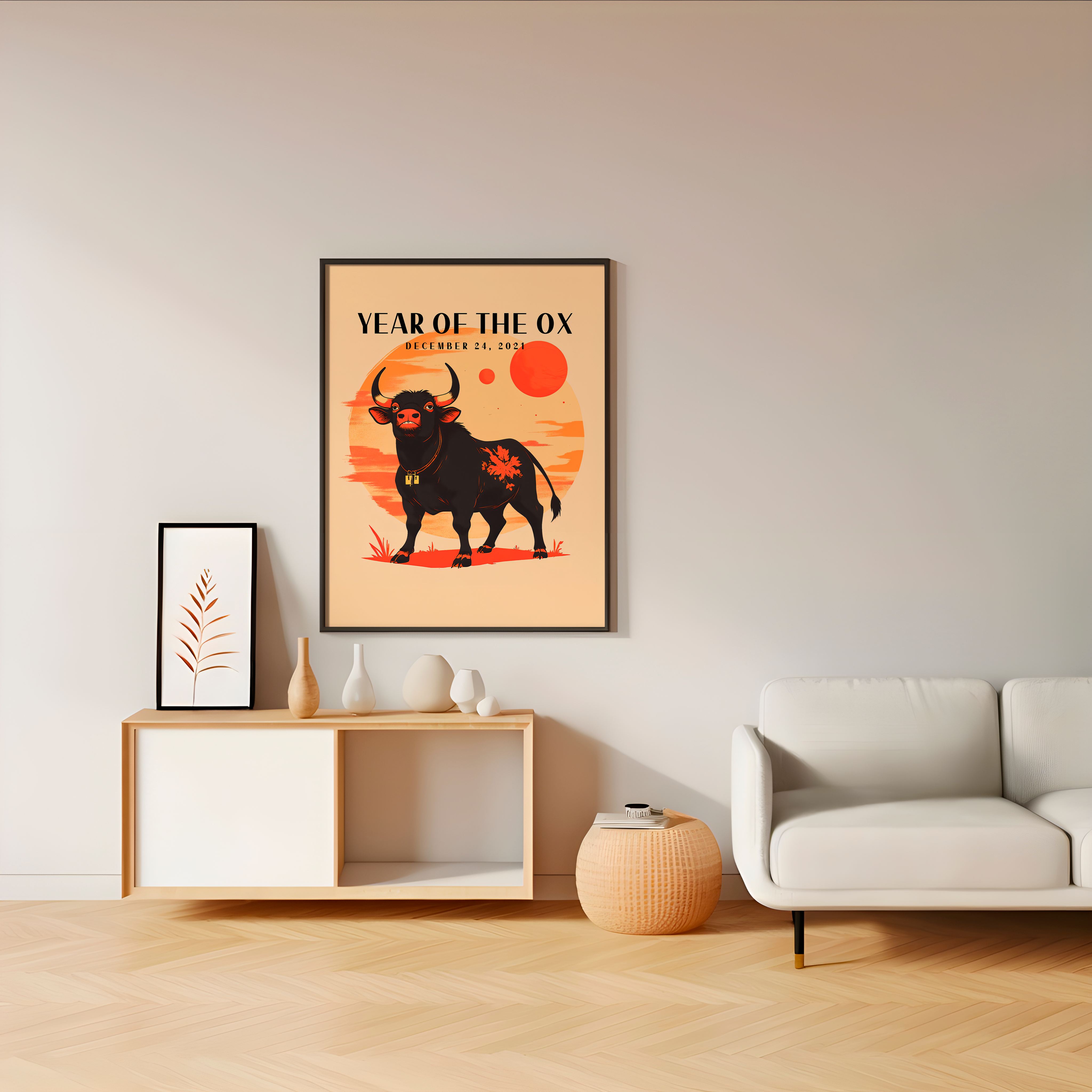
Is One More Accurate?
When comparing the Chinese zodiac and Western astrology, it’s natural to ask: which one is more accurate? But the answer isn’t so simple.
Accuracy in astrology depends heavily on personal belief systems, cultural background, and how each individual relates to the symbolism within the system.
Both frameworks offer insightful, time-tested methods for interpreting personality, fate, and life patterns—but they do so in fundamentally different ways.
Subjectivity and Belief Systems
Astrology is, at its core, a symbolic system. Its "accuracy" often lies in how well the language of the stars (or animals) reflects your internal world or lived experiences.
Some people find Western astrology's nuanced approach—especially its detailed birth charts—deeply resonant. Others connect more strongly with the broader, archetypal energy of their Chinese zodiac animal and the predictive flavor of annual forecasts.
In this way, astrology is less about scientific precision and more about meaning-making.
Can You Use Both? Absolutely.
In fact, many people do. Some use Western astrology for day-to-day reflection and emotional growth, and Chinese astrology for long-term planning and cultural alignment (especially in East Asian communities).
Others blend both systems into a broader spiritual practice, much like combining tarot with meditation or numerology with journaling.
Rather than asking which system is “correct,” it’s more useful to ask:
- Which one resonates with your personal experience?
- Which offers insights that help you grow, understand yourself, or make wise decisions?
- Are you drawn to depth and complexity, or to archetype and rhythm?
Both systems, though culturally and philosophically distinct, are attempts to bridge the human experience with the cosmos. They offer tools for connection, meaning, and guidance—not definitive answers, but deeply symbolic maps.
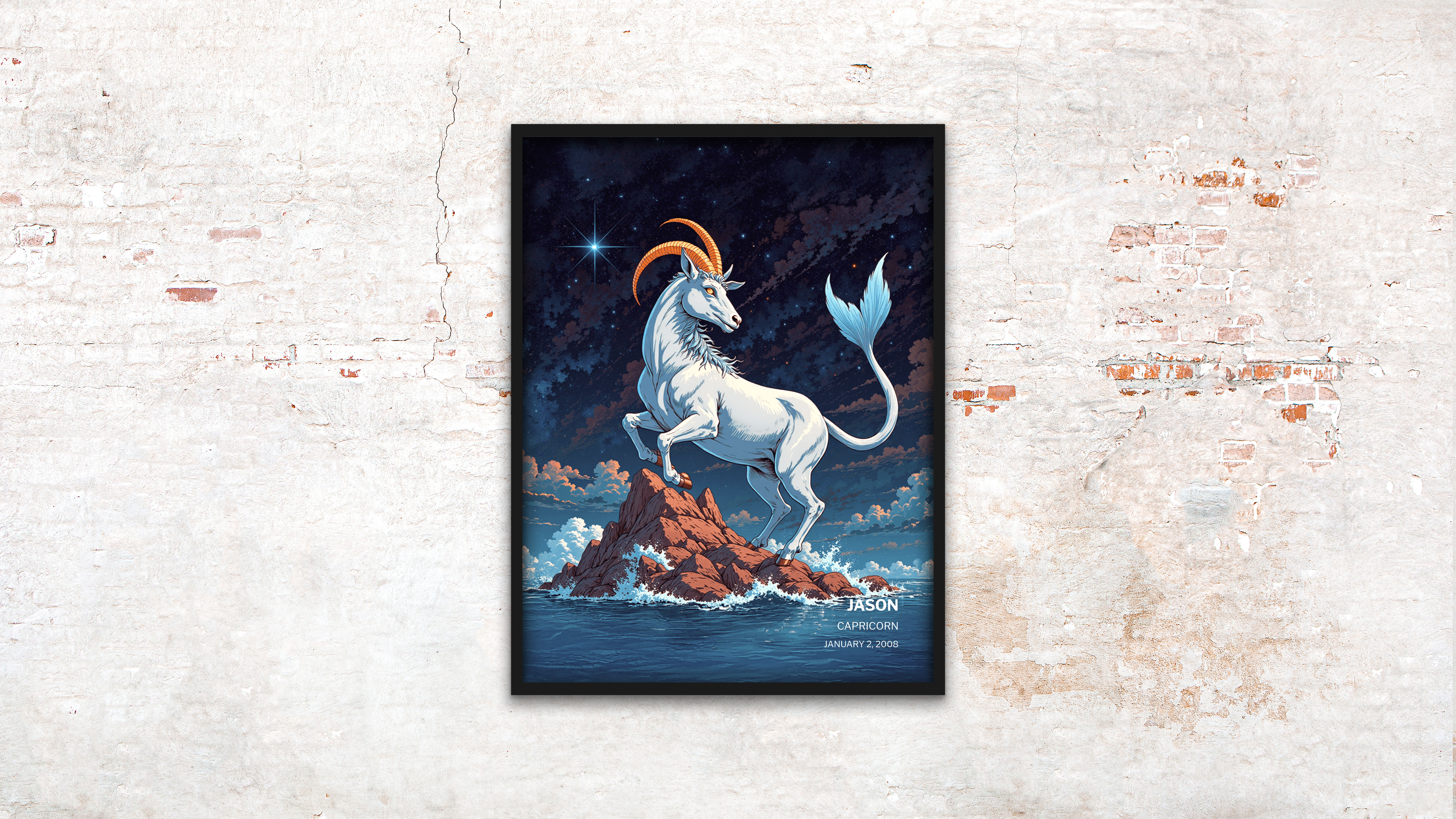
Western Astrology or Chinese Zodiac? It’s Up to You!
Astrology, whether through the celestial lens of the West or the mythic cycles of the East, offers a timeless human desire: to understand who we are, where we’re going, and how we fit into the greater scheme of the universe.
While the Western zodiac uses stars, planets, and psychological nuance to map our inner world, the Chinese zodiac turns to the rhythms of time, nature, and mythology to reveal patterns of fate and fortune.
Each system reflects the cultural values and philosophical foundations of its origins. Western astrology champions individuality, introspection, and personal evolution, often encouraging us to work through emotional layers and find empowerment in self-discovery.
The Chinese zodiac, in contrast, honors balance, destiny, and harmony, offering a framework for understanding life’s timing, social roles, and long-term outlook.
In the end, neither system is superior—they are simply different tools for different kinds of seekers. Some will find themselves in the fiery confidence of an Aries. Others may relate more deeply to the wise and mysterious Snake.
And many will recognize that both systems, though distinct, echo the same truth: we are all connected to something greater, and the stories we tell through the stars—or through animals—can help us navigate the complexities of life.
So whether you're reading your birth chart in an app or consulting your animal sign before a big decision, astrology offers a mirror. The image it reflects might not always be literal, but it’s often just what we need to see ourselves more clearly.

